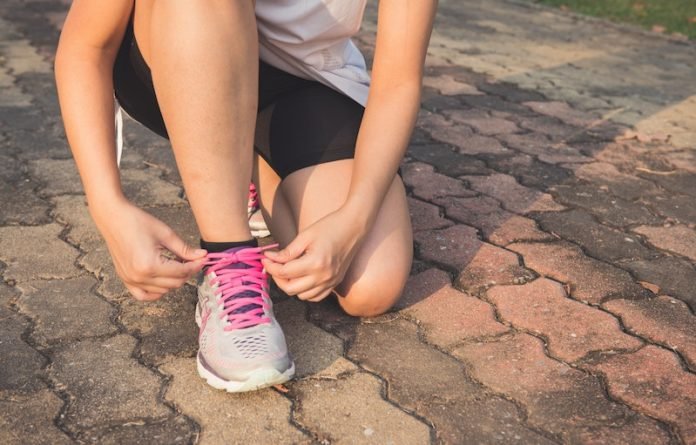
Maintaining a regular workout routine can help you look and feel great. And exercise also helps maintain your muscles and bones.
People who are unable to engage in physical activity experience weakening of the muscles and bones, a condition known as locomotor frailty.
In a study from Tokyo Medical and Dental University, scientists found a new drug that may aid in the treatment of locomotor frailty by inducing similar effects as exercise.
Physical inactivity can result in a weakening of the muscles (known as sarcopenia) and bones (known as osteoporosis).
Exercise dispels these frailties, increasing muscle strength and promoting bone formation while suppressing bone resorption.
However, exercise therapy cannot be applied to all clinical cases.
Drug therapy may be helpful in treating sarcopenia and osteoporosis, especially when the patients have cerebrovascular disease, dementia or when they have already become bedridden.
In the study, researchers developed a novel drug screening system to identify a compound that mimics the changes in muscle and bone that occur as a result of exercise.
They identified the aminoindazole derivative locamidazole (LAMZ).
LAMZ was capable of stimulating the growth of muscle cells and bone-forming cells while suppressing the growth of bone-resorbing cells.
The team found that LAMZ-treated mice exhibited larger muscle fiber width, greater maximal muscle strength, a higher rate of bone formation, and lower bone resorption activity.
The researchers further found that LAMZ mimics pathways activated during exercise and is involved in the maintenance of muscle and bone.
Taken together, the research team’s findings show that LAMZ represents a new therapy for the treatment of frailty by mimicking exercise.
If you care about bone health, please read studies that plant-based diets can harm your bone health without these nutrients, and this bone problem may strongly increase COVID-19 death risk.
For more information about health, please see recent studies that too much of vitamin may increase your risk of bone fractures, and results showing this type of exercise could slow down bone aging.
The study was conducted by Takehito Ono et al and published in Bone Research.
Copyright © 2022 Knowridge Science Report. All rights reserved.



